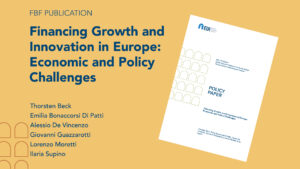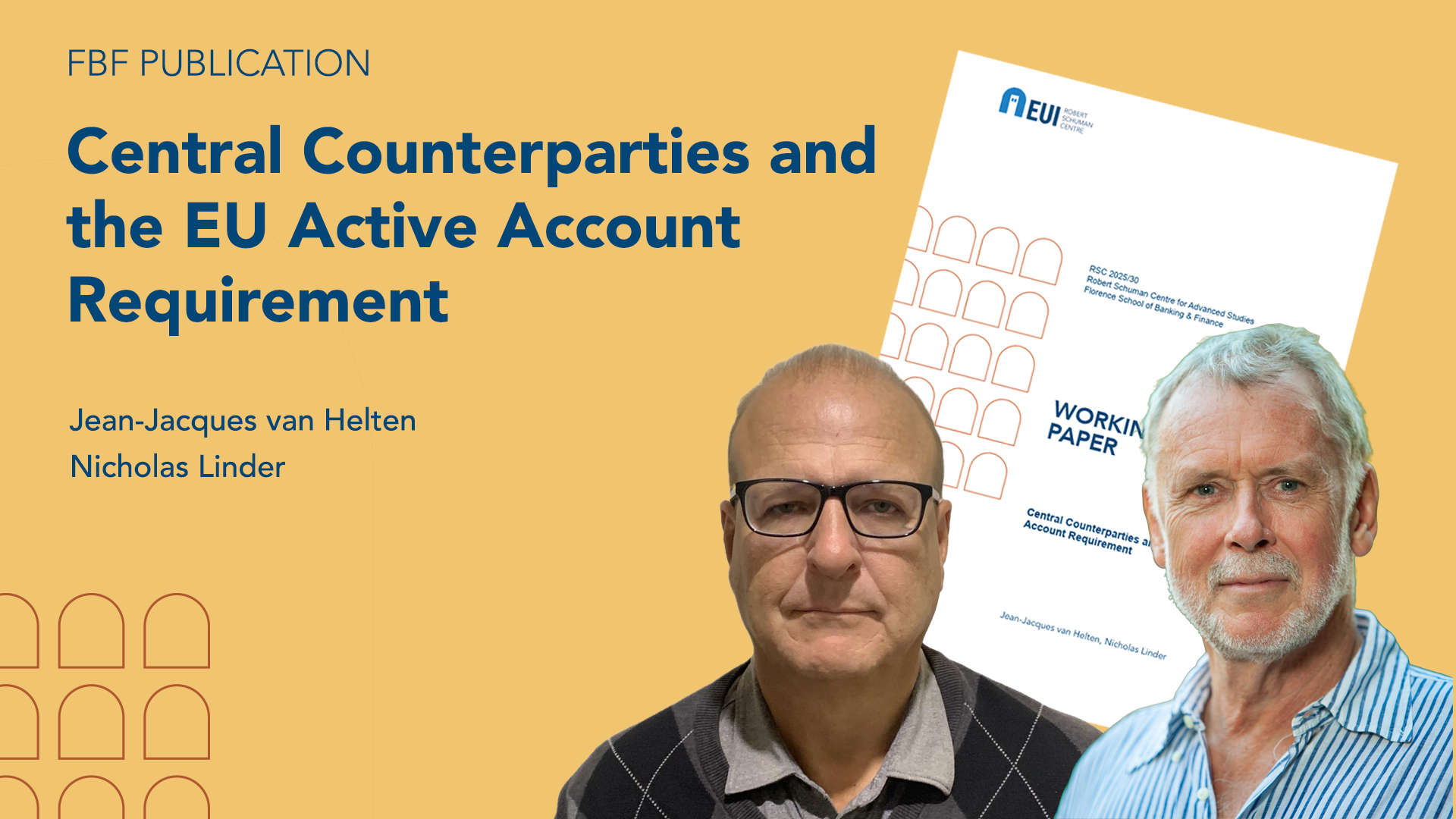Links
Next content
Read more
Financing growth and innovation in Europe: economic and policy challenges
This report presents the main takeaways from the Annual Conference of the Florence School of Banking and Finance, co-organised with the Bank of Italy on 10–11 March 2025. Discussions focused on the development of...
There are two related policy debates currently taking place inside the European Union (EU). The first centres around the themes set out in the 2024 Draghi Report,1 namely that the EU is lagging other leading global economies in terms of economic development and productivity and therefore that the EU should be more interventionist in terms of building out its core economic and social strengths across a variety of key economic sectors, including in its financial markets. The second debate, albeit occurring separately, concerns the European Commission’s longstanding Capital Markets Union (CMU) initiative, designed to increase financial integration and economic resilience within the EU. These debates have led to a new regulatory requirement being imposed within the EU, known as an Active Account Requirement (AAR), which is designed to strengthen central clearing activities within the EU capital markets. The AAR seeks to address potential financial stability risks arising from certain derivative product types currently cleared by EU-regulated clearing members and their clients at clearing services deemed by the EU to be of substantial systemic importance but which are located outside of the EU (particularly several of these services located within the UK). The AAR requires that such clearing members and their clients hold an operationally active account at an EU-based CCP and that they clear with that CCP a representative portfolio of trades in the relevant products. Through a detailed consideration of two contrasting CCP default experiences and an analysis of EU regulatory policy regarding CCPs and derivatives clearing, we outline some key potential impacts on EU financial markets that we see arising from the AAR. These include both increased systemic risk and an increased cost of clearing to financial market participants.
Gain further insights by watching this two-part discussion video featuring the same authors: Central Counterparty Clearing (CCP) and the EU Active Account Requirement (AAR)
